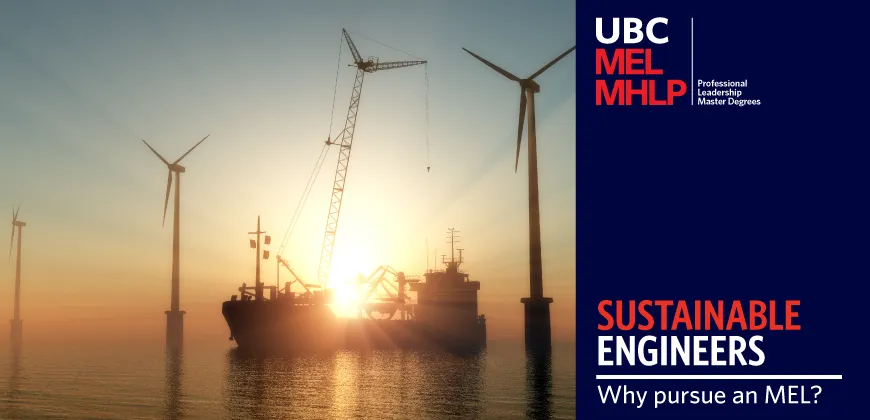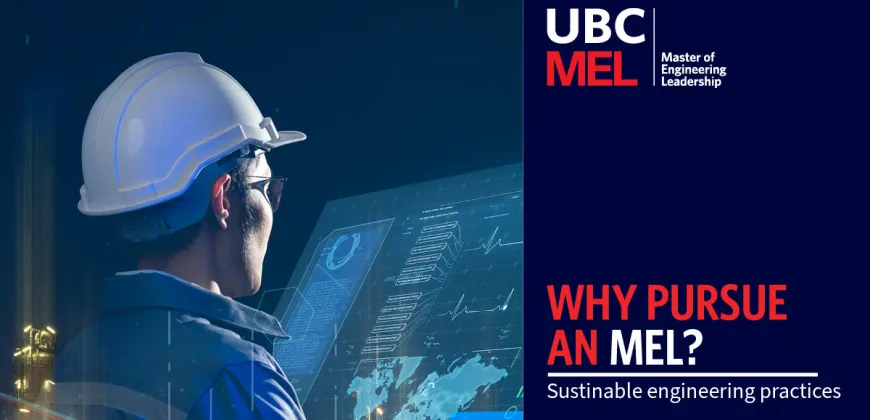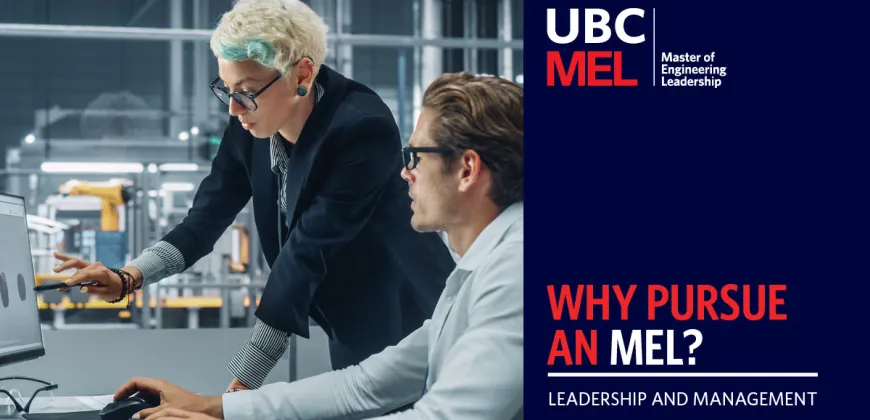Engineering a more sustainable world

Engineering a more sustainable world
Given that our planet is a closed-loop system, our unrestrained consumption of resources and focus on economic growth cannot continue without significant repercussions. We are already seeing the impacts of pollution, climate change and depleted resources, compounded by the pressures of an increasing global population and inequality. The list of challenges is long and growing. These are complex problems that require innovative solutions. That’s where engineers, with their systems thinking, specialized knowledge and problem-solving skills, can play a crucial role in building a more sustainable future.
The MEL: Grounded in sustainability
Undergraduate engineering education creates a strong foundation for analyzing problems and developing solutions. For engineers who want to maximize their impact, a master’s degree is often the pathway to deepening their knowledge of sustainability issues and broadening their technical expertise.
Each of the eight specialty programs offered in the UBC Master of Engineering Leadership (MEL) focuses on the latest industry issues through the lens of sustainability. These cross-disciplinary programs equip students to rethink traditional practices and understand how to integrate sustainability goals within each project.
In Naval Architecture and Marine Engineering this might involve designing vessels that are optimized for performance at higher speeds while also meeting energy-efficiency and noise-abatement goals. In Advanced Materials Manufacturing, it can mean analyzing the trade-offs between material choices for their performance, price and cradle-to-grave carbon impacts. In Integrated Water Management, it can be finding ways to drastically reduce water usage in resource development. Whatever their chosen program, MEL students broaden their technical knowledge and sharpen their analytical skills through a project-based curriculum. In High Performance Buildings, students use energy modelling software to design buildings that meet performance expectations related to greenhouse gas emissions, thermal energy demand and embodied carbon (read about developing energy models for a research lab in Prince George). In Urban Systems, they work on projects for industry and public-sector clients to propose innovative solutions to real-world infrastructure problems. Students in Clean Energy Engineering explore ways to shift to clean energy or reduce energy demand (read about a project to supplement diesel-powered electricity generation with lithium ion battery storage in a remote First Nations community). And in Sustainable Process Engineering they are challenged to rethink current chemical industrial practices to develop sustainable products, processes and technologies.
Aligning sustainability and business goals
Engineers who are committed to working on projects that support sustainability goals must have more than just technical tools in their toolbox.
As Vladan Prodanovic, director of the MEL in Clean Energy Engineering says, “We strongly believe that future leaders in this sector must have a comprehensive understanding of the technical issues, but that this is not enough. They must be excellent communicators. They need to know how to listen to a community, and how to convey complex ideas to the general public, organizations and policy makers. They need an understanding of business strategy and change management. Those who integrate this combination of skills are more likely to be successful in seeing the uptake and adoption of sustainable energy solutions.”
The business and leadership courses that make up between 30 and 40 per cent of the MEL curriculum enable students to gain these skills in leadership, communication and strategy. In Sustainability & Leadership, a course taught collaboratively between the Faculty of Applied Science and UBC Sauder’s Robert H. Lee Graduate School, students develop the skills to be sustainability leaders, becoming stronger communicators comfortable engaging with a wide range of stakeholders and learning adaptive leadership and change management strategies. The interdisciplinary nature of the MEL – combining technical and business education – equip engineers with a holistic perspective on both the industry value chain and on better ways of doing business. Our graduates return to the workforce with the knowledge and skills needed to confidently direct teams and communicate with a range of technical and non-technical stakeholders to achieve sustainability goals and implement lasting change.
Want to learn more?
Read our program directors’ thoughts on how the MEL empowers professionals to gain the cross-disciplinary technical knowledge they need to address some of the world’s most pressing problems. And find out more about how a MEL postgraduate degree can equip you with the skills and knowledge to make an impact on society and in the world.


